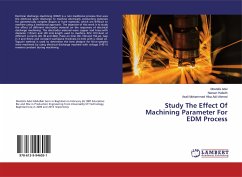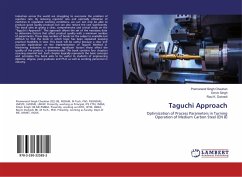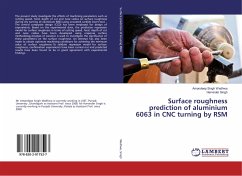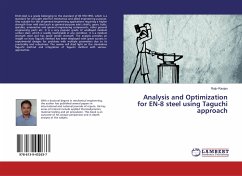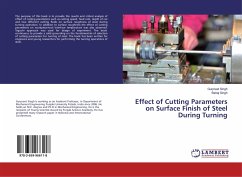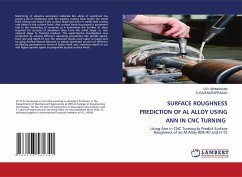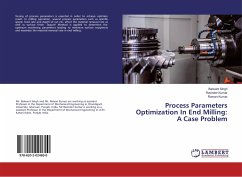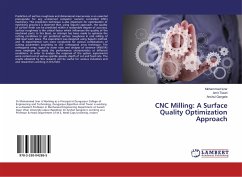
CNC Milling: A Surface Quality Optimization Approach
Versandkostenfrei!
Versandfertig in 6-10 Tagen
19,99 €
inkl. MwSt.

PAYBACK Punkte
10 °P sammeln!
Prediction of surface roughness and dimensional inaccuracies is an essential prerequisite for any unmanned computer numeric controlled (CNC) machinery. This prediction technique is also important for optimization of machining process.Ii is observed that, using Taguchi approach, the quality of surface finish can be predicted within a reasonable degree of accuracy. Surface roughness is the critical factor which influences the quality of the machined parts. In this Book, an attempt has been made to optimize the cutting conditions to get predicted surface roughness in end milling of mild steel wor...
Prediction of surface roughness and dimensional inaccuracies is an essential prerequisite for any unmanned computer numeric controlled (CNC) machinery. This prediction technique is also important for optimization of machining process.Ii is observed that, using Taguchi approach, the quality of surface finish can be predicted within a reasonable degree of accuracy. Surface roughness is the critical factor which influences the quality of the machined parts. In this Book, an attempt has been made to optimize the cutting conditions to get predicted surface roughness in end milling of mild steel work piece. The experiment was designed using Taguchi method and 16 experimental runs were conducted for various combinations of cutting parameters according to L16' orthogonal array technique. The orthogonal array, signal to noise ratio and analysis of variance (ANOVA) were employed to study the performance characteristics at different conditions. In order to analyze the response of the system, experiments were carried out at various spindle speeds, depth of cut and feed rate. The results obtained by this research will be useful for various industries and and researchers working in this field.



